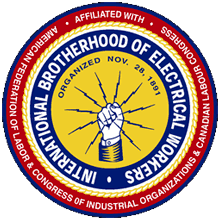November 7, 2013
By Michael Fina, Vice President / Institutional Banking, First Trade Union Bank
With online and mobile platforms settling in as the preferred personal banking channels, it is important for you to understand the ways in which you can and should safeguard your sensitive information, as well as the ways which your banking provider should protect you.
Security Precautions of Financial Institutions
You have the right to know how your bank is protecting your personal information and financial privacy. At First Trade Union Bank, a $600 million union-owned and organized community bank headquartered in Boston, MA, we utilize advanced security technologies and processes to safeguard client information when banking online or via a mobile device. These include using top-rated anti-virus protection, implementing advanced firewalls and performing regular software updates and security enhancements. Other precautions we take to protect client data include the following:
• Username, password and PassMark image and security questions are used for authentication when accessing accounts online or via a mobile device.
• Automatic logout of secure online and mobile banking sessions after a period of inactivity prevents others from accessing your online accounts.
• First Trade constantly monitors online and mobile banking activities for potential fraud, and never stores personal or account information on your mobile device.
• Only the mobile phones you personally enroll in mobile banking can be used to access your accounts. If your phone is ever lost or stolen, you can immediately disable mobile banking online or by calling the Bank.
What You Can Do
When using online and mobile devices for personal banking, it is prudent to take a few precautionary security steps to protect yourself. Here are five tips to consider:
1. Never share personal identifying informationsuch as your Social Security number, passwords, user names and online security codes with anyone who calls or emails you unsolicited. Be especially careful of urgent or threatening requests for this information.
2. Watch out for phishing emails.Most people are familiar with the infamous “Nigerian scam” email, in which a supposed government official asks for bank account information so he can disburse large sums of money from his country. But not all email phishing scams are this obvious.
Many, in fact, are quite sophisticated, copying well-recognized logos from large companies and financial institutions. Remember that financial institutions do not and should not ask for personal information in this way. If you ever receive such a suspicious email, contact the financial institution right away — and don’t click on the link.
3. Confirm website security.Before sharing any personal information online, be sure the website is secure. The website address should start with https:// (instead of http://) and there should be a closed padlock icon in the top left or right corner of your browser. And always log off from secure online sessions when you are finished, instead of just closing the browser window.
4. Use anti-virus and anti-malware software. This kind of software will help protect your computer against viruses and malicious software (or ‘malware’). Make sure the software is set to update automatically, and also that your email program is set to scan all attachments for viruses and malware.
5. Create strong passwords and PINs.These should include a combination of both upper and lower case letters, as well as numbers and special characters (if possible). Don’t use things that would be easy for someone else to guess, like your name or initials, birthday, phone number or street address. And change your passwords regularly.
Michael Fina, Vice President / Institutional Banking Relationship Manager for First Trade Union Bank, works in the company’s New Hyde Park office and is responsible for generating new relationships with public and private sector unions throughout New York State.
Mr. Fina can be reached at 516-874-9601or mfina@ftub.comwith any questions or comments. In the coming months, Mike will be providing commentary and insight into timely banking issues and how they impact union organizations and their members.



